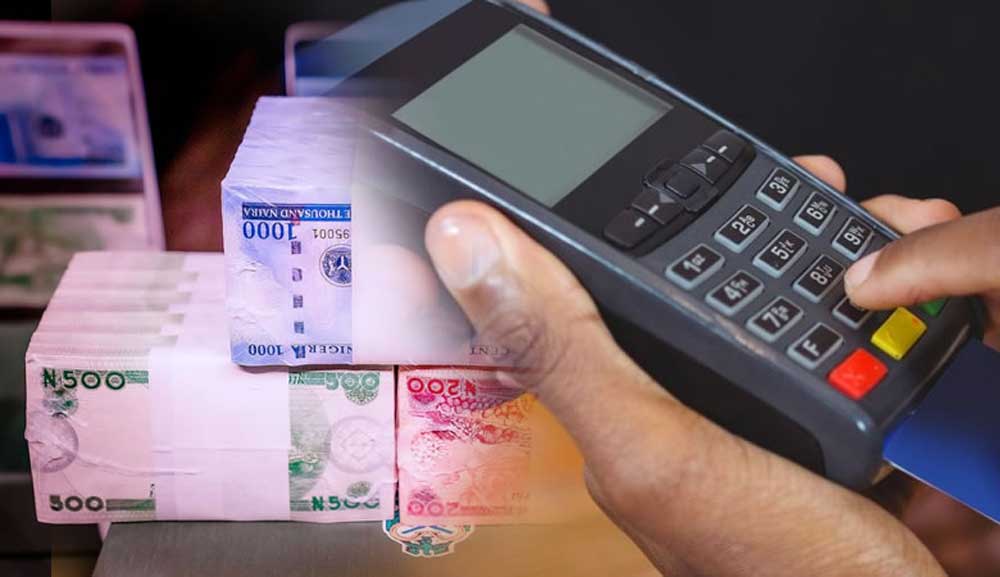Adnan Adams Mohammed reporting from Maiduguri, Nigeria
As the scarcity of naira is still raging making lives unbearable and complicated the norm, some business minded individuals are taking advantage of the situation to make money.
Although, illegal it is currently receiving increasing patronage as those who need cash have to look for cash sellers (especially, shop owners, tricycle riders, POS vendors) to buy at a cost between 20 to 30 percent.
The mode of such business is simple, since almost everyone have to use online payments or POS machine to pay for goods and services, there are some business transactions that need physical cash for instant payment as network most at times fails and one has to wait until network is restored. This phenomenon delays many people at service centers. This kind of frustration has forced some people to transfer between 1200 to 1300 naira to cash sellers online and receive 1000 naira cash.
Personal experience
I have to experience same situation in Abuja and Maiduguri in order to have physical cash at hand prompt and instant transactions on Sunday and Tuesday.

I had naira in a friends account, I need cash for instant use
We had to go a POS center, regular transfer and withdrawal outlet (like the momo vendors in Ghana), to plead if they had cash so we can transfer funds to them and take cash but luck eluded us.
So we had to look for shop sellers to plead for help, to our surprise, it was a black market business already being done.
The shop owner at Basa, told us that he can give cash only at 1300 naira transfer for 1000 naira cash.
Had no choice but have to accept that.
We transfered 9000 naira to him but got 7000 cash.
Also, at Maiduguri same situation existed but, the buyer had to book for cash buying in the morning and probably receive the cash in the evening or the next day.
Popular means of business and service transactions:
The current situation could be described as the necessary evil for advocates of ‘cashless economy’. But the aggressive nature of the situation makes a lot of the people in the most populous nation on the continent very vulnerable, especially those living in rural areas and the illiterate who do not even have a bank account.
The current means of paying for services and purchases are:
- POS machines;
- Bank transfer;
- Momo transfer and payment; and
- Online payment Apps. Among others.
Meanwhile, the Federal Government of Nigeria, on Monday March 13, 2023, ordered the Central Bank of Nigeria to obey the Supreme Court’s order to ensure the old currency notes are acceptable tenders and are in circulation through the commercial banks. But, the situation has not witnessed any improvement as at 4:30pm on Tuesday March 14, 2023.
Supreme Court’s order
Due to the uncertainty, many Nigerians have been reluctant to accept the old notes as a means of payment. This has worsened the already difficult situation for businesses experiencing poor sales.
Apparently, the Supreme Court recently ordered the Central Bank of Nigeria and the Nigerian government to allow the continued use of both the old and new naira notes until December.
Despite the ruling, banks and other businesses have continued to reject the old N500 and N1,000 notes, saying Mr Buhari and CBN governor Godwin Emefiele have not given them the go ahead, Premium Times report suggested.
On Friday March 10, 2023, the Supreme Court directed the central bank to extend the use of old banknotes until December 31.
This follows after a seven-member panel of the court led by John Okoro unanimously directed that the CBN must continue to receive the old notes from Nigerians
The court ruled that President Buhari’s directive for the redesign of new banknotes and the withdrawal of old notes without proper consultation was invalid.
“The disobedience of orders of courts by the President in a constitutional democracy as ours is a sign of the failure of the constitution and that democratic governance has become a mere pretension and is now replaced by autocracy or dictatorship,” Emmanuel Agim, a member of the Supreme Court panel, said in the court’s lead judgment.